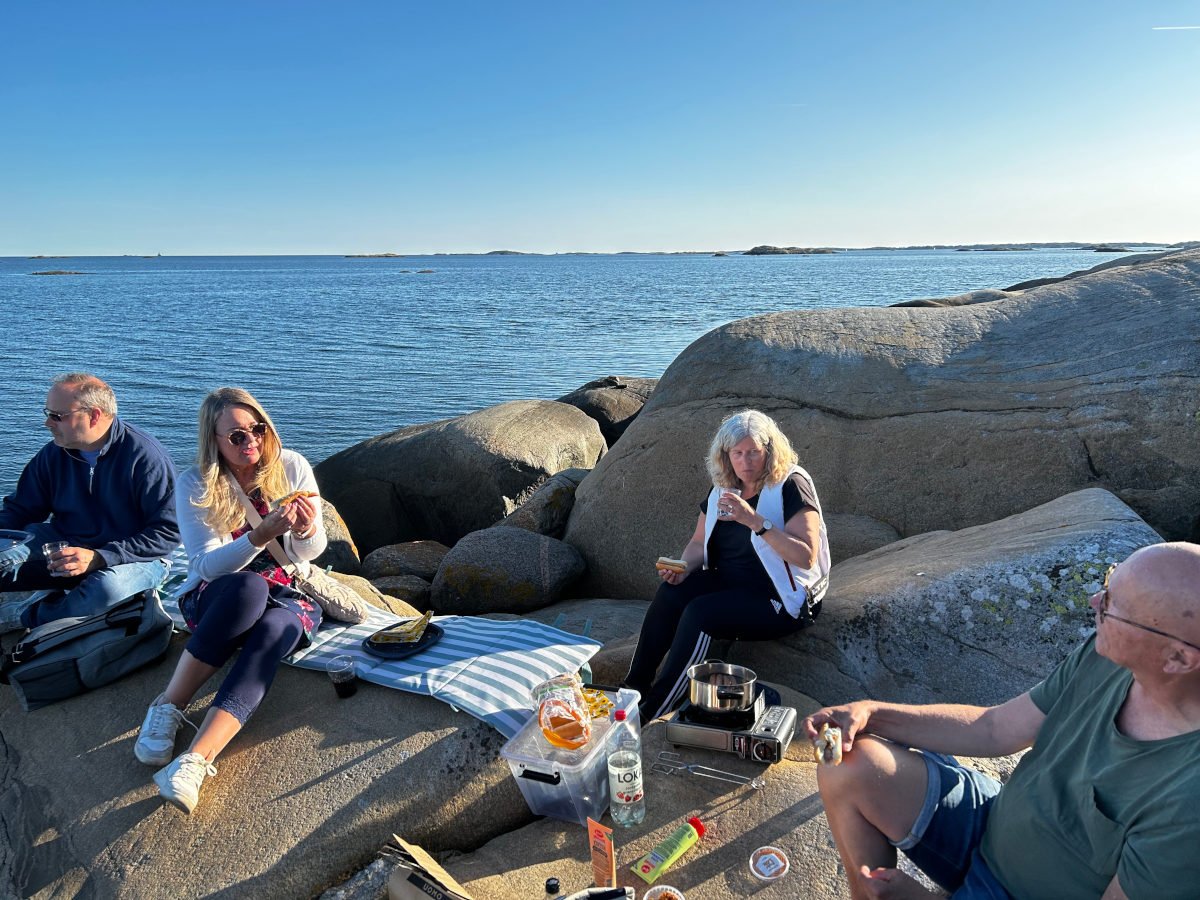A Swedish former colleague would unconsciously say nej instead of no when speaking English and there was the Hej! that Ikea uses worldwide. That was the extent of my Swedish when I moved. Not much to go on but in a country where English is so widely spoken, I was not too concerned.
That’s not to say that I wasn’t interested in learning Swedish. Ever since I had learned German as a kid while we were living in Switzerland, a new country always represented the opportunity of learning a new language. With varying success.
The ten years in Hong Kong, where I took Mandarin lessons twice a week with an increasingly exasperated teacher, resulted in what is now basically a party trick: I show people how to write Chinese characters on their smartphones. It never fails to impress but I would not be able to buy a train ticket in Beijing if my life depended on it.
So, after settling in, I registered with the closest state funded school providing the Svenska för Invandrare (SFI) course and took their intake assessment. My confident grasp of nej and hej put me firmly at level B: knows how to read and write – in other languages than Swedish, that is.
From various online forums I understand that experiences with SFI courses vary but I have to say: I’m excited.
First of all, the teachers I’ve encountered have been excellent. You meet quite a few of them because, for reasons never really explained, they rotate in and out of classes constantly. This may sound like a bad thing, but it actually exposes you to a variety of accents, teaching methods and materials which keeps things fresh.
The materials were another pleasant surprise. The course doesn’t use a textbook. The teacher collects different texts, videos, and other media focusing on a special topic for a couple of lessons. That topic can be anything from the more obvious, such as “regions in Sweden“, ranging to “music from my home country” or “love“.
This is a far cry from what you would find in the books that are normally used to teach beginners in which the basics of a language are without fail explained through stilted dialogs between foreign students in a new country presented with a dated dilemma. “Hi, my name is Jean-Pierre, I am from France. I’m a student in this country, learning the language. I need to use the payphone, but I do not have a coin…” Riveting stuff.
- The Swedish vocabulary parents need to know for back-to-school season
- Eight essential Swenglish words the world should adopt right now
But the most appealing part of the programme for me, is that only Swedish is spoken in class. In a group with as many students as there are nationalities – unlike in normal daily life in Sweden – it is not a given that everybody speaks English. So twice a week, I’m forced to venture beyond nej and hej to explain to a 20-year-old from Kyrgyzstan – who speaks Swedish maddeningly well – that “My name is Alex, I am from Holland…”
Alexander de Nerée moved to Stockholm with his husband in October 2020. He is Dutch, but moved from Zürich, Switzerland, after having lived in Hong Kong for 10 years. Signing up to move to a country they had never been to, in the middle of a global pandemic, was definitely a first for the couple. One of many more to come. Alexander writes for The Local about his “firsts” in Sweden.





 Please whitelist us to continue reading.
Please whitelist us to continue reading.
If you already have English, German and Dutch, then Swedish should be relatively easy for you – especially when it comes to vocabulary where many words look similar albeit with different pronunciations – or with similar pronunciations but very different spelling (often phonetical). Swedish grammar is also relatively simple, particularly when compared to German or French grammar.
My experience has been to also learn to write Swedish well. Swedes will respect you for it. And these days it’s very useful to be able to write in a ‘Chatt’ session when communicating with a supplier or the phone company etc through their website. Doesn’t have to be perfect, but nonetheless reasonably fluent. Also, often much shorter queues for Chatt compared to the telephone 🙂
My experience on trying to learn Swedish has been very disappointing. They plonk you in the middle of a course session so instead of starting from the basics and building up from that you struggle with complex and more advanced structures.